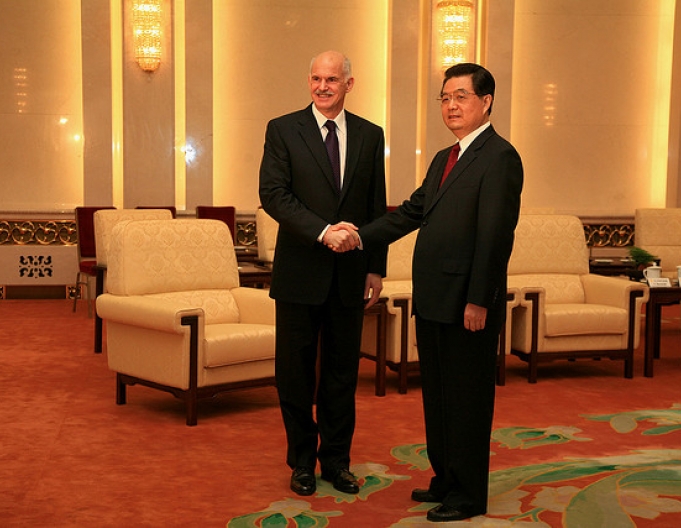BEIJING – I had dinner with a few senior European financiers and professors in Beijing last week. When we talked about the euro crisis looming over Europe, we couldn’t but agree unanimously: across today’s small globe, all the major countries on the planet simply lack a strong leader. This is the very reason why the debt crisis has turned into a global epidemic touching every continent.
My European friends criticized French President Nicolas Sarkozy outright as being overambitious and unrealistic. German Chancellor Angel Merkel is indecisive and lacks guts. British Prime Minister Cameron is shortsighted and non-tactical. U.S. President Barack Obama is rhetoric without action. And Japan changes its Prime Minister as quickly as a Beijing billboard panel rotates its advertisements.
The developed economies are the source of the current global financial and debt crisis. The total size of these countries’ economies makes up 60% of the world economy. Yet they all lack a long-term plan for solving the crisis and for sustaining economic growth into the future.
Since the birth of euro in 1999, hardly any euro-zone member country complies with the Maastricht Treaty. Almost all have gone beyond the red line and exceeded the limit of 3% budget deficit as well as 60% public debt of its GDP.
Even Germany and France, the backbone countries of euro, did not abide by the rules. It’s a shocking reality. And yet the fatal problem is that neither the Maastricht Treaty nor any other agreement actually specifies that the member countries are obliged to rescue other members. A euro zone without bailout clauses is obviously a fatal flaw in its design. Now that the crisis has hit, the taxpayers of the euro countries are expected to bail out the debt-saddled countries. But where is the legal basis for that? No wonder Germans are so angry.
On September 7, Germany’s highest court ruled that the relief measures of the German government did not breach the constitution. Yet at the same time, the court required the government to get the consent of the Bundestag in any future aid plan. This means that from now on it will be absolutely impossible for the German chancellor to come up with ad hoc decisions or rapid actions at all. This is definitely not good news for coping with the current fast-moving financial situation.
Euro peril
The blind expansion of the euro zone before a solid foundation had been built was another serious mistake. Greece was far from being truly qualified to be a member. Yet the other euro leaders wanted to encourage their entrance, and tolerated the fact that Greece manipulated data and cooked its books.
Now the European sovereign debt crisis has evolved into a euro peril, and people openly talk about forcing Greece out. Deciding whether the euro will even survive is now on the agenda.
I was once a euro optimistic, however when I see that none of the major politicians in the euro zone has either courage or strategy, I have gradually become more skeptical.
The wrong mechanisms, coupled with the fact that nobody abides by the rules, resulted in a serious misconception of the international financial market that somehow Greek bonds are as safe and as good as the German ones.
One should remember that before the crisis, the bond yields of Greece were more or less equivalent to Germany’s. Had Greece not been in the single euro zone, how could the international investors possibly regard the risk of Greek bonds as equivalent to Germany’s?
The single currency provides the opportunity of free riding and free lunch behavior. This won’t last.
The successive mistakes that the euro zone leaders committed show clearly they don’t command far-sighted strategic thinking.
Fortunately, Germany’s Merkel has shifted her approach in recent speeches. She has started to insist that in order to solve the problem, the European Union must reflect thoroughly on the structural defects at the foundation of their economic system. Only in identifying the root of the ills can they come up with long-term strategies and policies.
Saving Europe from the debt crisis — or from any financial crisis for that matterl — is not about finding money, but finding smart ideas and strong leadership.
Xiang Songzuo is the Vice-Director of China’s Institute for International Monetary Affairs, and chief editor of Global Finance.
